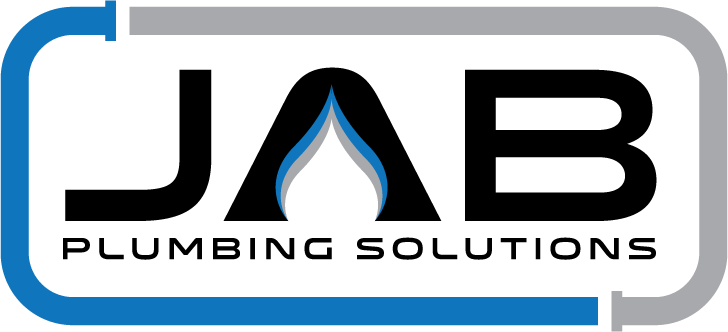Too often, residents unwittingly compromise their own plumbing systems by engaging in behaviour that is detrimental to their drains. This includes things like flushing items that should go in the bin or conducting poor DIY repairs. This article looks at eleven surprising facts about clogged drains that most people are unaware of.
Some DIY drain repairs are actually illegal: It’s okay for residents to plunge a toilet or drain themselves. They’re also permitted to use drain cleaning chemicals in their attempts to clear a clog. However, any repairs to the actual plumbing infrastructure must be conducted by a licensed and qualified drain plumber. If you perform repairs to the drainage infrastructure and something goes wrong, any damage incurred will not be covered by insurance.
Blocked drains can be dangerous: Yes, you read that correctly. Blocked drains are not only inconvenient they can actually harm your health. In particular, if a clogged toilet or blocked sewer brings you into contact with raw, untreated sewage you are susceptible to a number of diseases and bacteria. Water damage caused by overflowing clogged drains can also lead to mould - another health hazard.
Some people flush food down the toilet: Are you guilty of this? It might seem like a strange thing to do, but it’s actually not that uncommon! Many people flush food leftovers, such as soup, down the toilet. There are a number of reasons for doing so, including convenience and prevention of smelly, decomposing food in the bin. Most food will get through the plumbing pipes easily enough but it’s not a good habit to get into as some foods cause clogged drains.
You can unclog a blocked toilet without a plunger: When you accidentally clog a toilet and don’t have a plunger on hand you can create a make-shift plunger using other materials in the house. Almost every household has either a string mop or a toilet brush and both are surprisingly effective plunger substitutes. Simply cover the end with a plastic bag, secure it tightly, get a good seal over the toilet drain and plunge up and down with forceful movements as you would with a plunger.
Toilets are not garbage bins: This should be obvious but it’s not. Some people are actually surprised when they find out that flushing rubbish such as tampons, cotton buds, condoms and other personal care items can cause clogs in the sewer line. A clogged sewer may result in difficulties flushing, the toilet backing up and possibly overflowing onto the floor. Reserve the toilet for its intended purpose and place all other items in the bin.
Grease and oil should never go down the drain: Because it’s a liquid, many people don’t think twice about pouring oil down the drain. Even washing greasy pans under hot water can be problematic. When oil cools down it goes hard, forming a lining inside drain pipes. It builds up over time, clogging the pipes like an artery. When coagulating grease comes into contact with other debris inside the pipes such as wet-wipes or tampons, it can glue these items together forming large clumps known as fatbergs. Fatbergs larger than buses have been discovered in council sewer mains.
Flushable items should not actually be flushed: There are plenty of products on supermarket shelves that are marketed as “flushable”, such as flushable kitty litter and flushable wet-wipes. However, that these items can still result in badly clogged drains. As mentioned above - reserve the toilet for its intended use. Don’t flush anything except excrement, water and toilet paper.
Not all plumbers can unblock drains: You would be forgiven for assuming that any plumber can unclog a blocked drain. However, plenty of regular plumbers don’t even own the necessary tools for the job. This is because drain technology, including jet blasters and plumbing cameras, is expensive to purchase and maintain. Many plumbers prefer to subcontract out their big drain jobs to blocked drain experts such as JAB Plumbing Solutions. Next time you have a clogged drain, you should cut out the middle man and look for a drainage plumber.
Your pet could be contributing to clogged drains: Just like human hair, pet hair can get stuck in the pipes and cause clogged drains. This rings true in particular for dog breeds with long fur. Brush your dog thoroughly to remove excess hair before washing them. You can also purchase hair catchers to place over drains.
It’s not okay to substitute toilet paper with kitchen towel: Sometimes the toilet paper runs out unexpectedly! During the Coronavirus toilet-paper-panic it was hard to find toilet paper when needed. This resulted in many people substituting toilet paper with kitchen roll, tissues and paper napkins. While these alternatives appear to be similar to toilet paper, they are thicker, larger and more durable. They don’t disintegrate in water easily and can lead to clogged drains.
There are two kinds of plumbing plungers: When you think of a plunger, a cup plunger is the type of plunger that usually springs to mind. These are the most common kinds of plungers that you will find in peoples home. Cup plungers are suitable for blocked drains where the drain opening is a flat surface, such as shower drains, sink drains or bath drains. What most people don’t realise is that blocked toilets should be unclogged using a flange plunger. These purpose-built toilet plungers have a lip that helps get a better seal on the irregularly shaped toilet drain hole.
Need Sydney clogged drain repairs?
JAB Plumbing Solutions is Sydney’s premier blocked drain company. We specialise in all things drains including clogged drain repairs, high-pressure drain cleaning, jet blasting, pipe inspections and drain installations. To find out more about our drainage services give us a call on 1800 225 552.
RELATED ARTICLES







